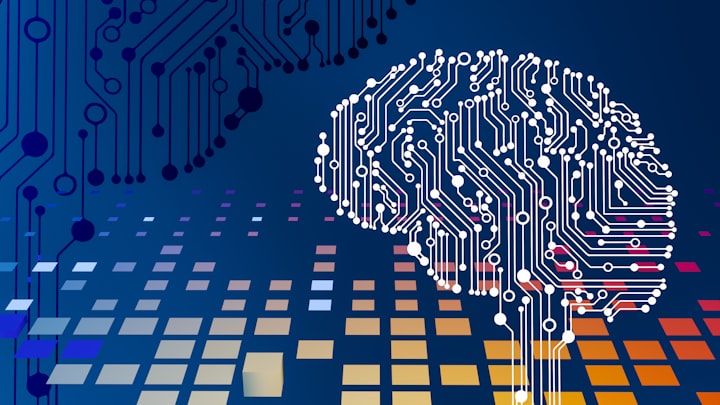Advancements in Artificial Intelligence: A Deep Dive into AI Improvements
AI IMPROVEMENT

Introduction.
Artificial Intelligence (AI) has been at the forefront of technological innovation in recent years. Rapid advancements have revolutionized industries, from healthcare to finance, and even everyday life. This article explores key developments in AI, highlighting breakthroughs in machine learning, natural language processing, computer vision, and ethical considerations. These improvements signify a promising future for AI and its widespread applications.
Machine Learning.
Machine learning, a subset of AI, has witnessed significant progress. Deep learning models, such as neural networks, have achieved remarkable results in various tasks. The introduction of Transformer architecture, exemplified by models like GPT-3, has revolutionized natural language processing, enabling more human-like text generation, language translation, and understanding context.
Reinforcement learning has also made strides, allowing AI agents to learn and adapt through interaction with their environments. Notable examples include AlphaGo's victory over human Go champions and autonomous vehicles navigating complex city streets. These advances demonstrate the potential of AI to master complex tasks and problem-solving.
Natural Language Processing.
AI has made substantial progress in understanding and generating human language. Pretrained language models have become incredibly powerful, enabling tasks like sentiment analysis, chatbots, and language translation. The ability to fine-tune these models for specific applications has expanded their utility.
Conversational AI has seen remarkable improvements, enhancing customer support and virtual assistants. AI chatbots can now engage in more natural and context-aware conversations, making them valuable tools for businesses and consumers alike.
Computer Vision.
Computer vision has witnessed significant advancements, with deep learning models like convolutional neural networks (CNNs) leading the way. These models excel in image recognition, object detection, and facial recognition. This progress has practical applications in security, healthcare, and self-driving cars.
Generative Adversarial Networks (GANs) have emerged as a powerful tool for image synthesis. They can create realistic images, art, and even deepfake videos. However, ethical concerns surrounding the misuse of GANs have also arisen.
Ethical Considerations .
As AI continues to evolve, ethical concerns have grown in importance. Issues related to bias in AI algorithms, privacy, and the potential for misuse have come to the forefront. Researchers and policymakers are actively working on addressing these challenges through fairness-aware machine learning, responsible AI development, and robust privacy protection measures.
AI has raised questions about the impact on the job market, as automation and AI-driven systems replace some human roles. Ethical considerations also extend to the development of autonomous weapons and AI's role in decision-making, such as in healthcare and criminal justice.
Conclusion.
The rapid advancements in AI, from machine learning to natural language processing and computer vision, are shaping a future where AI systems will play increasingly significant roles in various aspects of our lives. Ethical considerations are crucial in ensuring AI's responsible development and deployment. While the AI field continues to evolve, the potential for positive impact across industries is immense. With continued research and responsible implementation, AI improvements promise a brighter and more innovative future
Introduction.
Artificial Intelligence (AI) has been at the forefront of technological innovation in recent years. Rapid advancements have revolutionized industries, from healthcare to finance, and even everyday life. This article explores key developments in AI, highlighting breakthroughs in machine learning, natural language processing, computer vision, and ethical considerations. These improvements signify a promising future for AI and its widespread applications.
Machine Learning.
Machine learning, a subset of AI, has witnessed significant progress. Deep learning models, such as neural networks, have achieved remarkable results in various tasks. The introduction of Transformer architecture, exemplified by models like GPT-3, has revolutionized natural language processing, enabling more human-like text generation, language translation, and understanding context.
Reinforcement learning has also made strides, allowing AI agents to learn and adapt through interaction with their environments. Notable examples include AlphaGo's victory over human Go champions and autonomous vehicles navigating complex city streets. These advances demonstrate the potential of AI to master complex tasks and problem-solving.
Natural Language Processing.
AI has made substantial progress in understanding and generating human language. Pretrained language models have become incredibly powerful, enabling tasks like sentiment analysis, chatbots, and language translation. The ability to fine-tune these models for specific applications has expanded their utility.
Conversational AI has seen remarkable improvements, enhancing customer support and virtual assistants. AI chatbots can now engage in more natural and context-aware conversations, making them valuable tools for businesses and consumers alike.
Computer Vision.
Computer vision has witnessed significant advancements, with deep learning models like convolutional neural networks (CNNs) leading the way. These models excel in image recognition, object detection, and facial recognition. This progress has practical applications in security, healthcare, and self-driving cars.
Generative Adversarial Networks (GANs) have emerged as a powerful tool for image synthesis. They can create realistic images, art, and even deepfake videos. However, ethical concerns surrounding the misuse of GANs have also arisen.
Ethical Considerations .
As AI continues to evolve, ethical concerns have grown in importance. Issues related to bias in AI algorithms, privacy, and the potential for misuse have come to the forefront. Researchers and policymakers are actively working on addressing these challenges through fairness-aware machine learning, responsible AI development, and robust privacy protection measures.
AI has raised questions about the impact on the job market, as automation and AI-driven systems replace some human roles. Ethical considerations also extend to the development of autonomous weapons and AI's role in decision-making, such as in healthcare and criminal justice.
Conclusion.
The rapid advancements in AI, from machine learning to natural language processing and computer vision, are shaping a future where AI systems will play increasingly significant roles in various aspects of our lives. Ethical considerations are crucial in ensuring AI's responsible development and deployment. While the AI field continues to evolve, the potential for positive impact across industries is immense. With continued research and responsible implementation, AI improvements promise a brighter and more innovative future





Comments
There are no comments for this story
Be the first to respond and start the conversation.